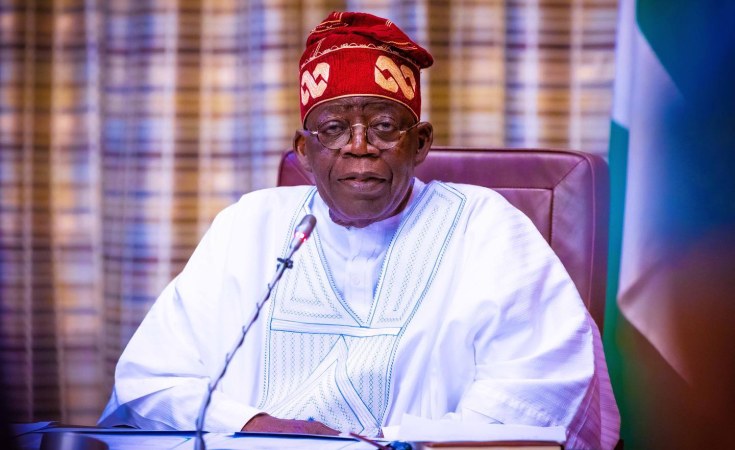A seven-member panel of the Supreme Court headed by John Okoro made the announcement after taking arguments from lawyers to the parties on Monday.
The Supreme Court has reserved judgment on Peter Obi's appeal seeking to invalidate President Bola Tinubu's election.
A seven-member panel of the Supreme Court headed by John Okoro made the announcement after taking arguments from lawyers to the parties on Monday.
"This appeal is reserved for judgment until a date to be communicated to parties," Mr Okoro said.
During the hearing, Mr Obi's lead lawyer, Livy Uzoukwu, a Senior Advocate of Nigeria (SAN), urged the court to allow his client's appeal.
He prayed the court to set aside the judgement of the Presidential Election Petition Court in Abuja which affirmed Mr Tinubu's election on 6 September.
However, Mr Tinubu's lawyer, Wole Olanipekun, a SAN, argued that Mr Obi's appeal lacked merit.
Mr Olanipekun urged the court to dismiss the appeal.
The All Progressives Congress (APC) through its lawyer, Akin Olujinmi, too, asked the court to uphold the judgement of the Presidential Election Petition Court affirming Mr Tinubu's election.
Unlike Atiku Abubakar of the Peoples Democratic Party who sought to breathe fresh life into his appeal by tendering President Tinubu's academic records from the Chicago State University, Mr Obi stuck to the evidence he had submitted to the presidential election court.
As a result, Monday's proceedings were brief as Mr Obi and the respondents lawyers merely adopted their court filings before the appeal was reserved for judgement.
Background
Mr Obi premised his appeal on 51 grounds, arguing that the Presidential Election Petition Court's judgement declining to nullify Mr Tinubu's election occasioned a miscarriage of justice.
He contended that the the five-member panel of the Presidential Election Petition Court led by Haruna Tsammani "erred in law and thereby reached a wrong conclusion" when it dismissed his case.
Mr Obi's lawyer Mr Uzoukwu, a Senior Advocate of Nigeria (SAN), faulted the court's evaluation of Mr Obi's evidence.
He said the court erroneously ruled that Mr Obi's case failed to establish the polling stations where electoral malpractices took place during the February presidential election.
The lawyer also said the lower court's conclusions caused "grave miscarriage of justice" when it held that Mr Obi did not identify the specific number of votes he polled at polling units where he accused INEC and Mr Tinubu of suppression of votes.
The appellant's lawyer urged the Supreme Court to determine if the presidential election court did not err in law when it based its reasons on the First Schedule of the Electoral Act 2022 to expunge Mr Obi's witnesses' statements on oath from the court's records.
Some of Mr Obi's principal witnesses whom the five-member panel of the court dismissed their testimonies were a web engineer, Mpeh Ogar; and a statistician, Eric Uwadiagwu.
"The learned justices of the court below erred in law and occasioned a miscarriage of justice when they held and concluded that he (Mr Obi) failed to establish the allegation of corrupt practices and over-voting," the appellant's lawyer argued.
Electronic transmission
The appellant also faulted the presidential election court's decision rejecting his contention that INEC circumvented its own regulations and guidelines when it refused to electronically transmit results of the election from polling stations to the IReV.
"The petitioners adduced credible and substantial evidence, both oral and documentary, that proved substantial non-compliance with the Electoral Act 2022 by the Respondents in the conduct of the election," the notice of appeal read in part.
Tinubu's, Shettima's non-qualification
Arguing further, the appellant alleged that Mr Tinubu was not qualified to vie for the election on account of improper nomination of his vice-presidential pick.
Mr Obi's lawyer, Mr Uzoukwu, said "the court below overlooked that the respondents failed to disprove the evidence of substantial non-compliance adduced by the petitioners."
The appellant, in the filing, told the Supreme Court that the lower court ignored evidence that proved how Mr Tinubu was indicted and fined $4,600, in the U.S. for alleged cocaine trafficking in the 1990s.


